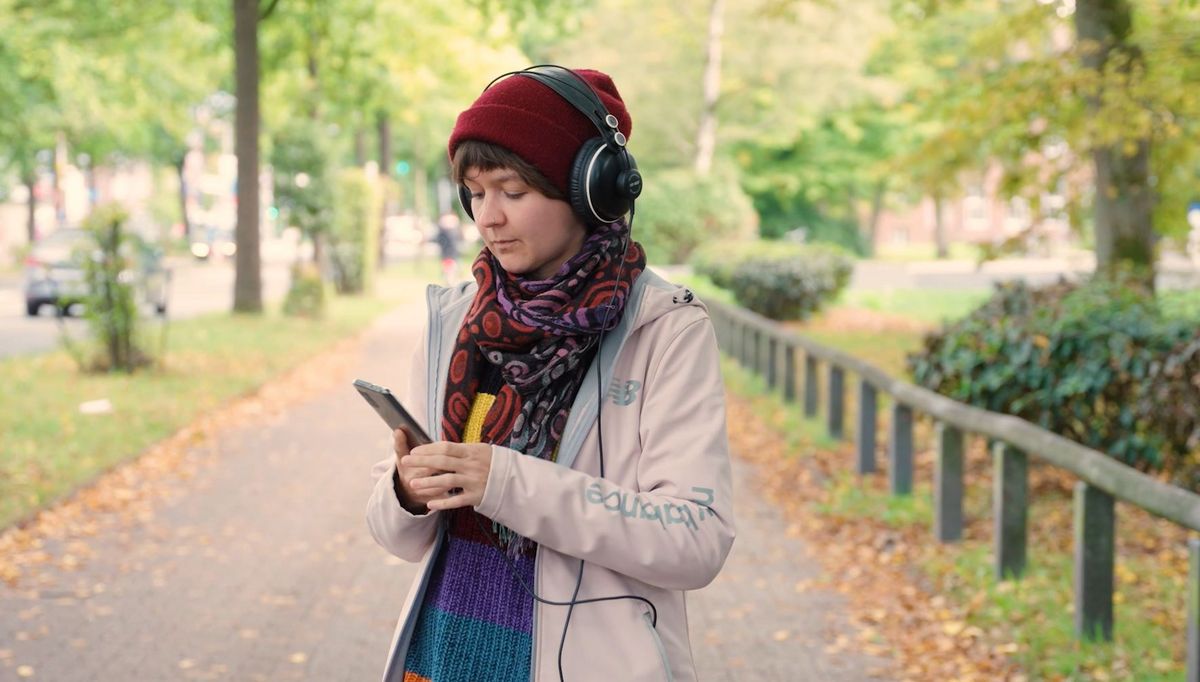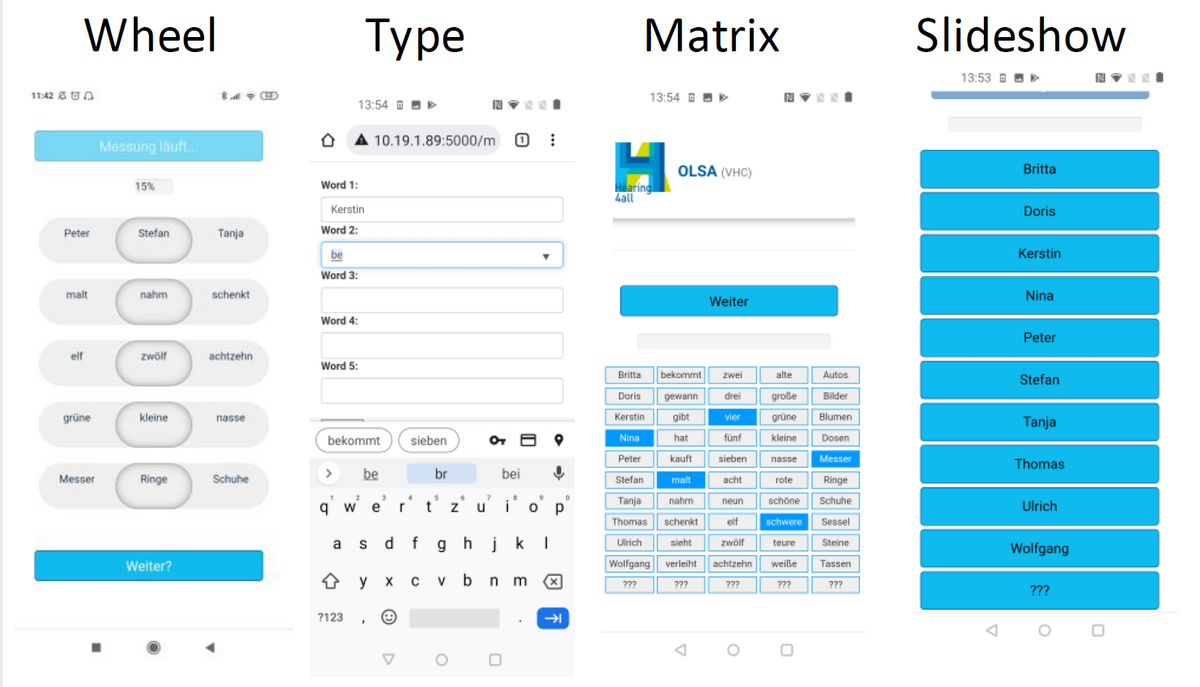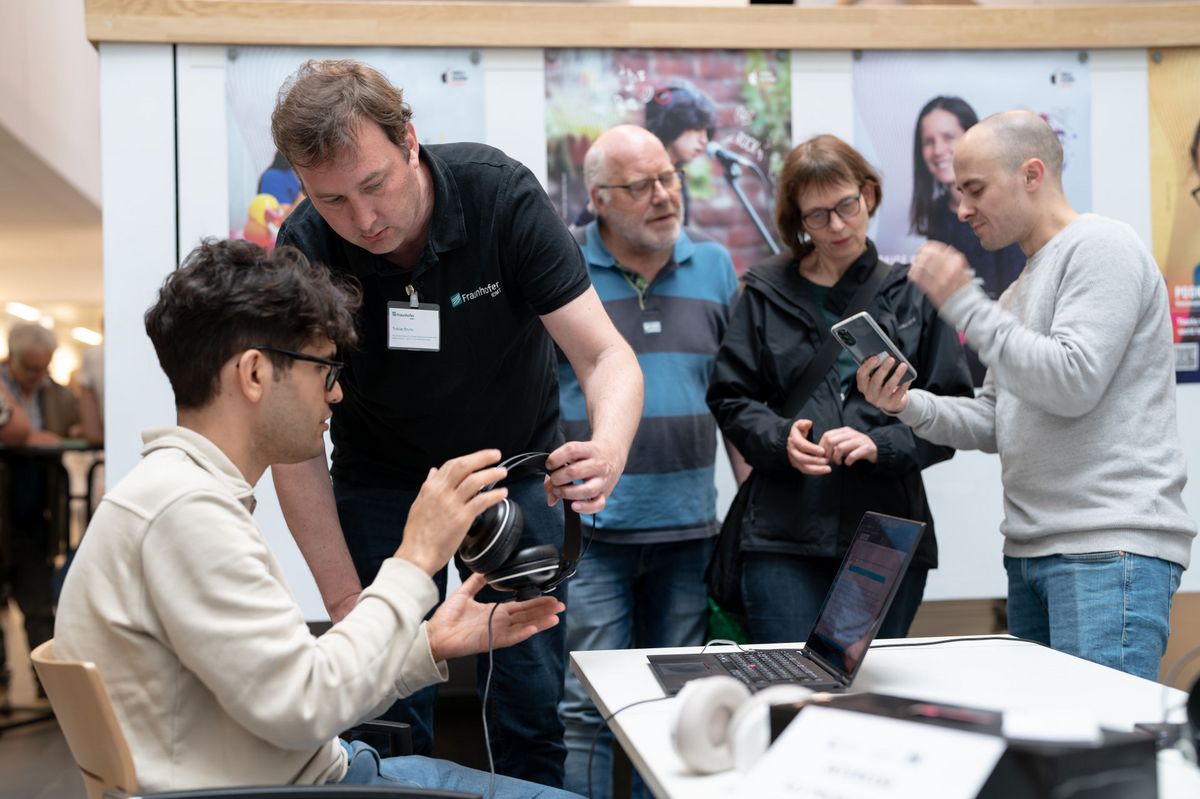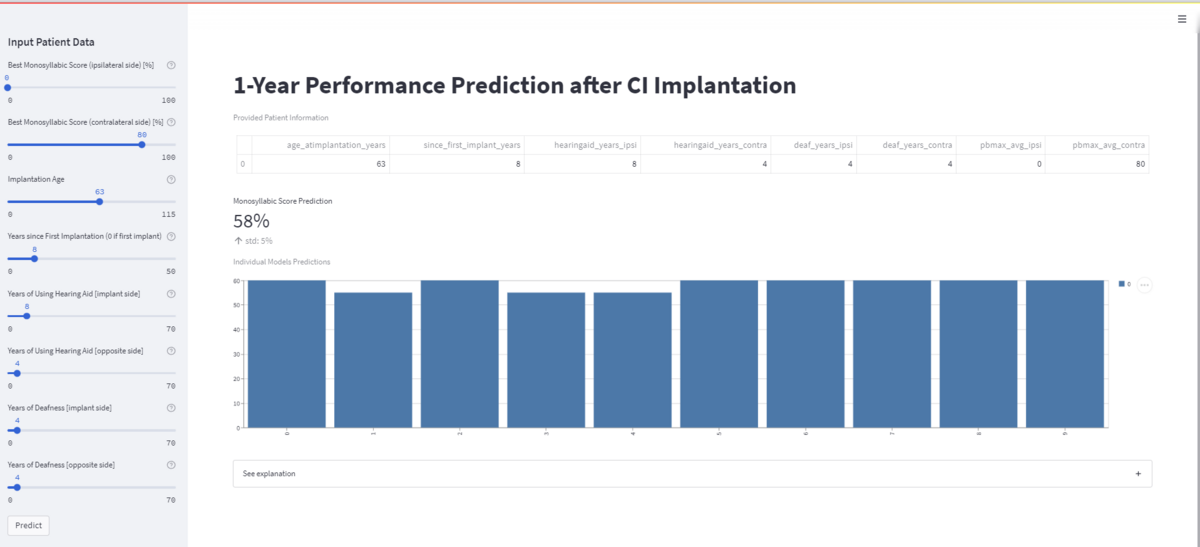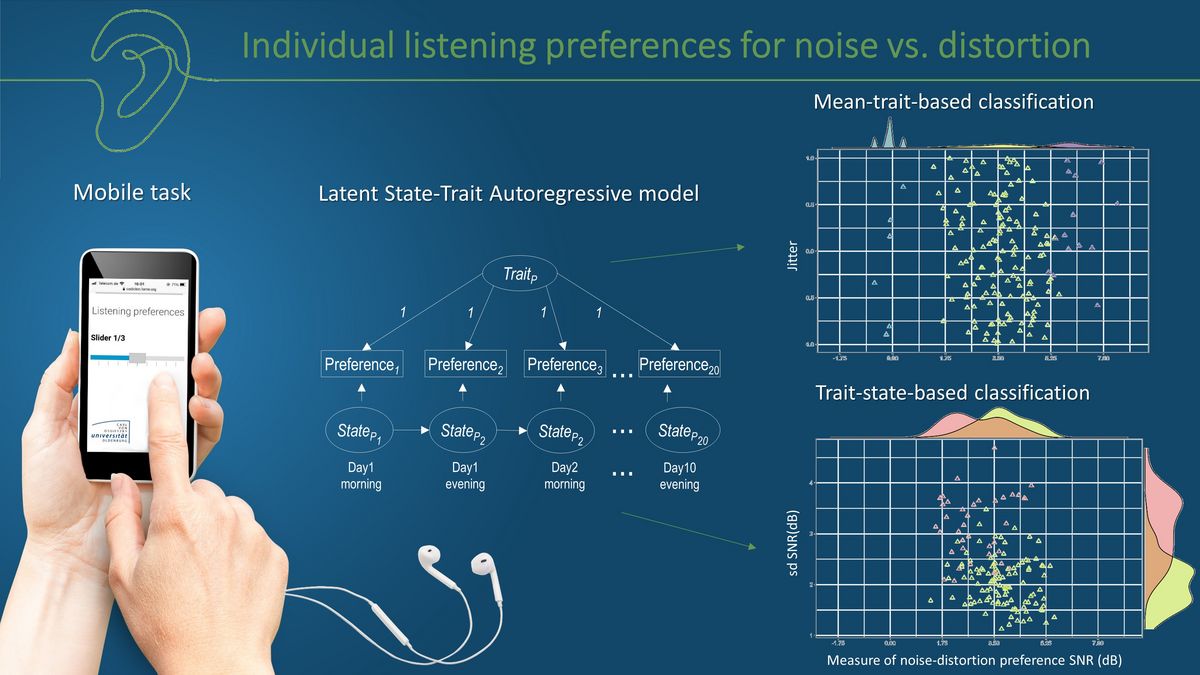The "Virtual Hearing Clinic" (VHC)
The "Virtual Hearing Clinic" (VHC)
The Virtual Hearing Clinic (VHC) is a key concept of the Cluster of Excellence „Hearing4all” and aims to create low-threshold access to hearing diagnostics and rehabilitation for as many people as possible using mobile devices.
Details
In the Cluster of Excellence, the VHC serves as a research platform for conducting studies outside the laboratory and with large and diverse groups of people.
Four central functional modules have been defined as the basic content framework: a) self-guided diagnostics b) profile-based treatment recommendation c) hearing support and benefit prediction and d) individual fitting and optimization.
With the virtual hearing clinic, the researchers strive to provide patients with more information and decision-making authority about their own health, and also, in line with their own vision of “hearing for all”, enable people to receive diagnostics and hearing support who, for various reasons, do not have access to traditional medical care systems.
Poster: Modules and Perspectives of the Virtual Hearing Clinic (VHC)
Publications regarding the Virtual Hearing Clinic
Prediction of Hearing Help Seeking to Design a Recommentation Module of an mHealth Hearing App: Intensive Longitudinal Study of Feature Importance Assesment. (Angonese, G., Buhl, M., Kuhlmann, I., Kollmeier, B., & Hildebrandt, A. (2024). JMIR Human Factors, 11, e52310.) https://doi.org/10.2196/52310
Comparison of user interfaces for measuring the matrix sentence test on a smartphone (Saak, S., Kothe, A., Buhl, M., & Kollmeier, B. (10 Aug 2024) International Journal of Audiology.) https://doi.org/10.1080/14992027.2024.2385551
How Does Inattention Influence the Robustness and Efficiency of Adaptive Procedures in the Context of Psychoacoustic Assessments via Smartphone? (Xu, C. et al, in preparation) https://psyarxiv.com/9ytd6/download
Evaluation of adjustment behaviour in a semi-supervised self-adjustment fine-tuning procedure for hearing aids. (Gößwein, J. A., Rennies, J., Winneke, A., Hildebrandt, A., & Kollmeier, B. (2023). International Journal of Audiology, 63(5), 313–325.) https://doi.org/10.1080/14992027.2023.2196601
Method to control the amount of “musical” noise for speech quality assessments. (Gößwein, J. A., Rennies, J. & Kollmeier, B. (2023) Acta Acust., 7 (2023) 18)
Mapping Aided Speech Recognition Thresholds for Model-based Hearing Aid Fitting (Schell-Majoor, L. & Kollmeier, B., 2023). https://pub.dega-akustik.de/DAGA_2023/data/articles/000274.pdf
Auf dem Weg zur virtuellen Hörklinik: Grundlagen und Lösungswege aus dem Exzellenzcluster Hearing4all (Schell-Majoor, L., Büchner, A., Kollmeier, B., 2023). dx.doi.org/10.3205/23dga009 dga.cloud/s/qAP6LDX3ZbsFpco
A flexible data-driven audiological patient stratification method for deriving auditory profiles. (Saak, S., Huelsmeier, D., Kollmeier, B., & Buhl, M. (2022). Frontiers in Neurology, 13, 959582)
Evaluation of a semi-supervised self-adjustment fine-tuning procedure for hearing aids. (Gößwein, J. A., Rennies, J., Huber, R., Bruns, T., Hildebrandt, A., & Kollmeier, B. (2022). International Journal of Audiology, 62(2), 159–171. https://doi.org/10.1080/14992027.2022.2028022
Cluster of Excellence "Hearing4all"
The Virtual Hearing Clinic is part of the research focus “IT-supported diagnosis and rehabilitation” in the Cluster of Excellence „Hearing4all”.
The aim of the interdisciplinary research alliance between the University of Oldenburg, Hannover Medical School and Leibniz Universität Hannover is literally “hearing for all”. Through the further development of individualized hearing diagnostics and the provision of personal hearing aids adapted to this, the communication situation of those affected is to be significantly improved. „Hearing4all” has been funded since 2012 as part of the Excellence Strategy of the German federal and state governments.




